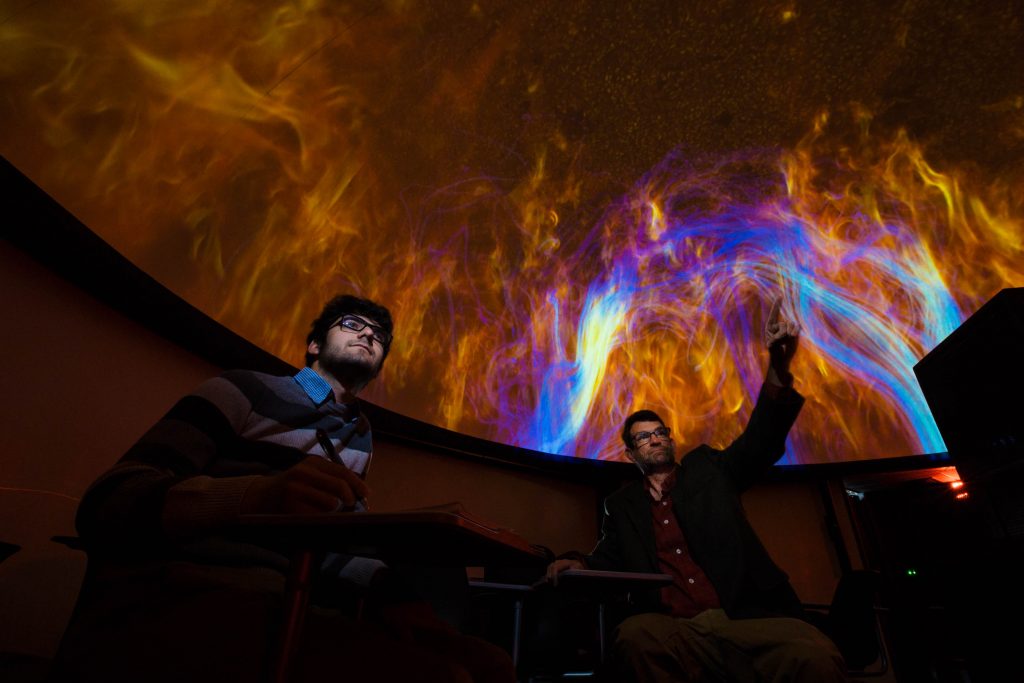Thursday, October 3
12:00 Noon “The Sky this Month”
A live talk about the current night sky and astronomy news. (~45 min)
“Astro-Afternoon,” Sunday, October 6
1:00 “The Sky this Month”
A live talk about the current night sky and astronomy news. (~45 min)
2:00 “Gettysburgians Talk about Time”
A 2018 Hatter Planetarium production (~50 min)
3:00 “Phantom of the Universe”
From the journey of protons racing through the world’s largest particle collider in Europe to up-close views of the Big Bang and emergent cosmos, Phantom of the Universe is a new fulldome planetarium show designed to immerse audiences in the search for dark matter. A collaboration of Lawrence Berkeley National Lab, University of Texas at Arlington, Michigan State University, IFIC at University of Valencia, as well as other institutions. It is narrated by Oscar-winning actress, Tilda Swinton. (28 min)
4:00 “The Sky this Month”
A live talk about the current night sky and astronomy news. (~45 min)
The Hatter Planetarium is located in Masters Hall, Room 115, on the Gettysburg College Campus. This series of shows is free and all are welcome as seats remain. No admittance while a show is running. Vistitors should keep in mind that they are entering a working college campus, possibly while classes are in session. The planetarium will be open 15 minutes before the show begins, unless the previous show is still running. The Hatter Planetarium does not have its own lobby or exhibit space as a science museum would. Restrooms are on the same floor as the planetarium. Food and drink are prohibited in the planetarium.
We also accept field trip requests from school and community groups!


